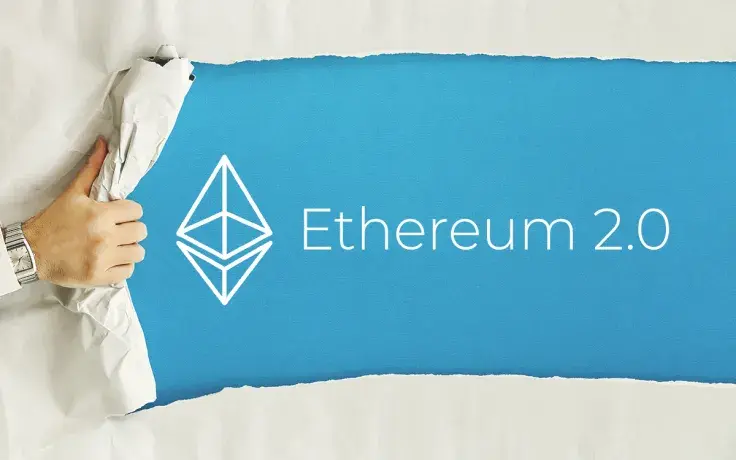The Ethereum (ETH) network is preparing itself for the most radical update in its history - switching from Ethereum 1.0 to Ethereum 2.0. This may occur in 2020 after the last Ethereum 1.0 hard fork. Carl Beekhuizen of the Ethereum Foundation's Research and Development (R&D) Department recently shared some details on the status of the future network.
Three Steps to the New Ethereum
Since the design of Ethereum 2.0 will be quite different from what we have seen with Ethereum 1.0, the migration process will take a significant amount of time. At the moment, developers plan to organize it in three stages.
During Phase 0, or "Beacon Chain", the interaction between validators and the coordination of shards will be managed. Mr. Beekhuizen added that "the beacon chain is the source of ground truth" for Ethereum 2.0.
During Phase 1, the data will migrate to newly designed components from the existing ETH. Finally, Phase 2 will upgrade Ethereum 2.0 from a robust database to a fully decentralized computing platform.
Mr. Beekhuizen also mentioned the progress with these stages:
At the time of writing, Phase 0 is nearing launch as developers put the finishing touches on the client software. Meanwhile, the specification for Phase 1 is being completed, and Phase 2 is under active R&D, said Carl Beekhuizen.
Advertisement
Validators' Mission
The new ETH will be a Proof-of-Stake (PoS) network, where all transactions will be approved by validators. Mr. Beekhuizen says that the design of Ethereum 2.0 will allow a "million" validators to simultaneously act on the network. In order to avoid the system from overloading, all validators will interact with the main network through "committees".
Ethereum 2.0 makes the distinction between nodes and validator clients, and validators will need both in order to perform their duties. Each validator will need to stake exactly 32 ETH to a validator deposit contract.
Therefore, people who wish to stake more ETH will need to run multiple validator instances. The node-client separation allows such users to only run a single beacon node with multiple validators connected to it, thereby reducing computation, memory, and storage requirements.
According to Carl Beekhuizen, the network will be enough reliable to survive World War III, unsophisticated enough to run on a laptop, and fraud-resistant enough to assume that validators will be lazy and take bribes.
ETH is currently worth $151.3 USD, so you can become a validator on Ethereum 2.0 network for only $4,842 USD. Does this sound interesting to you? Share your thoughts on Twitter!



 Dan Burgin
Dan Burgin Vladislav Sopov
Vladislav Sopov